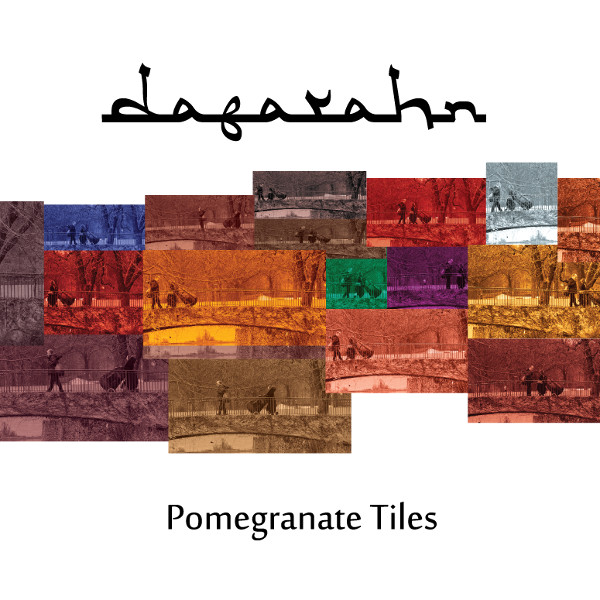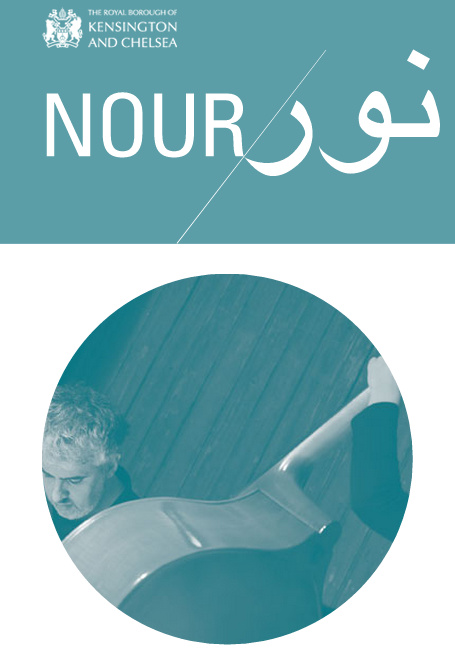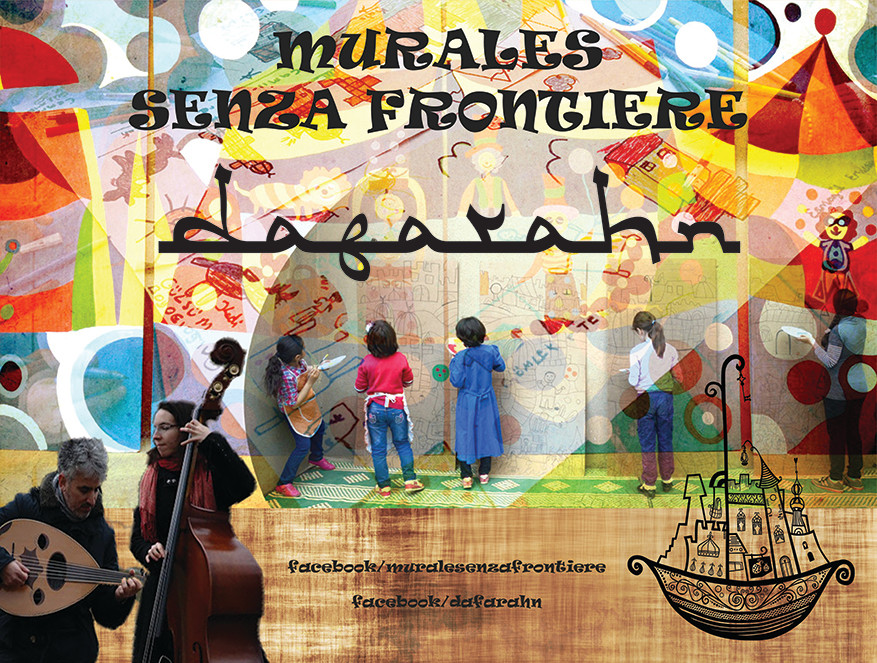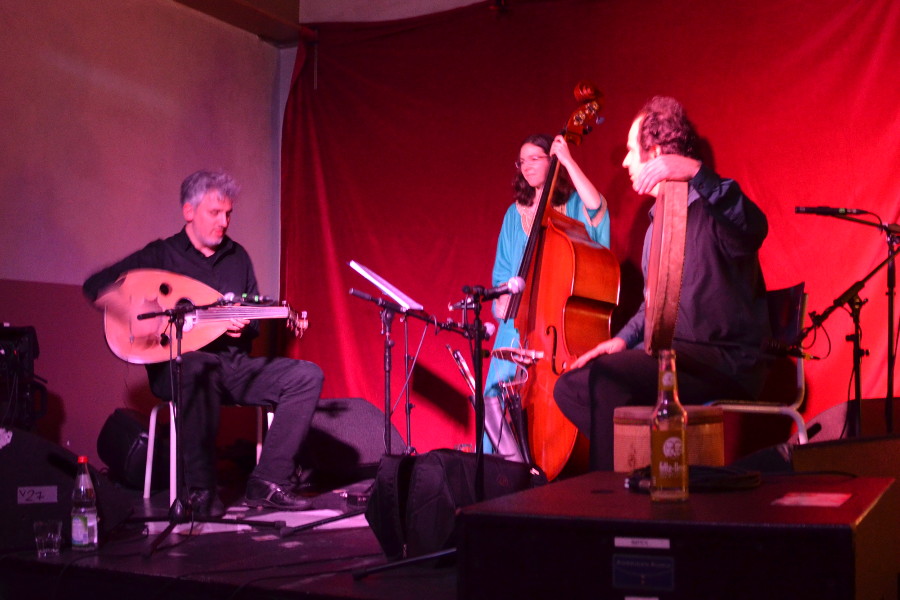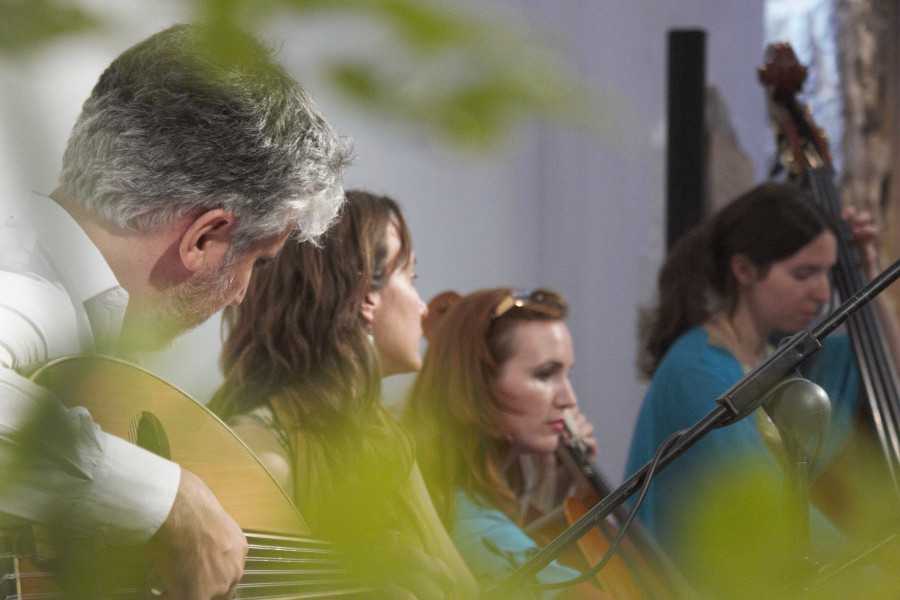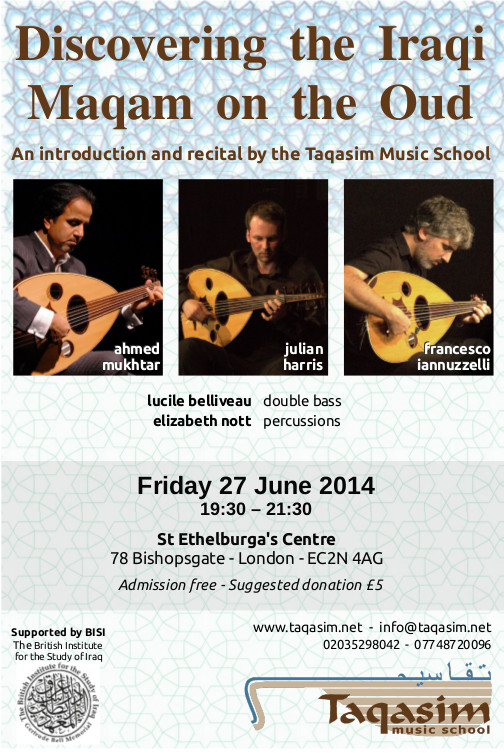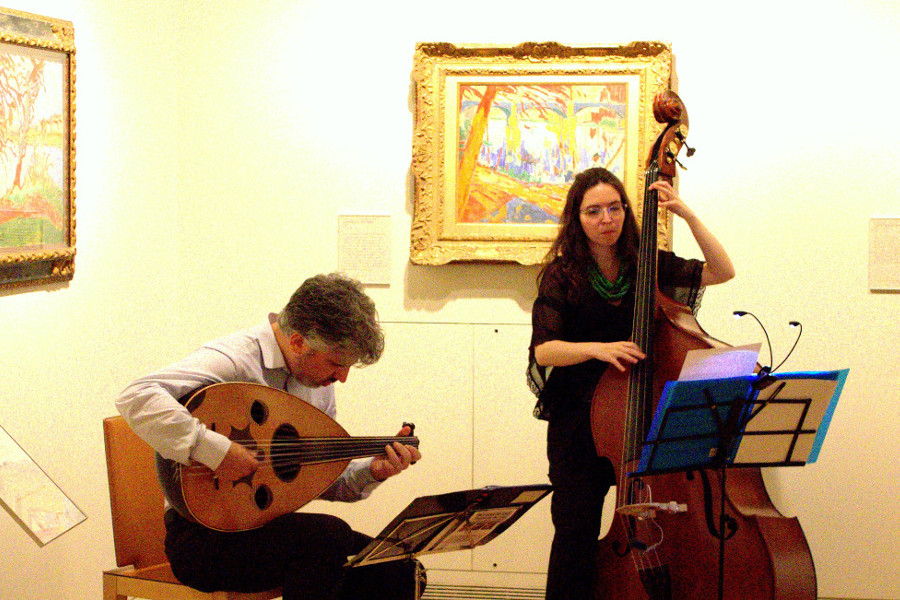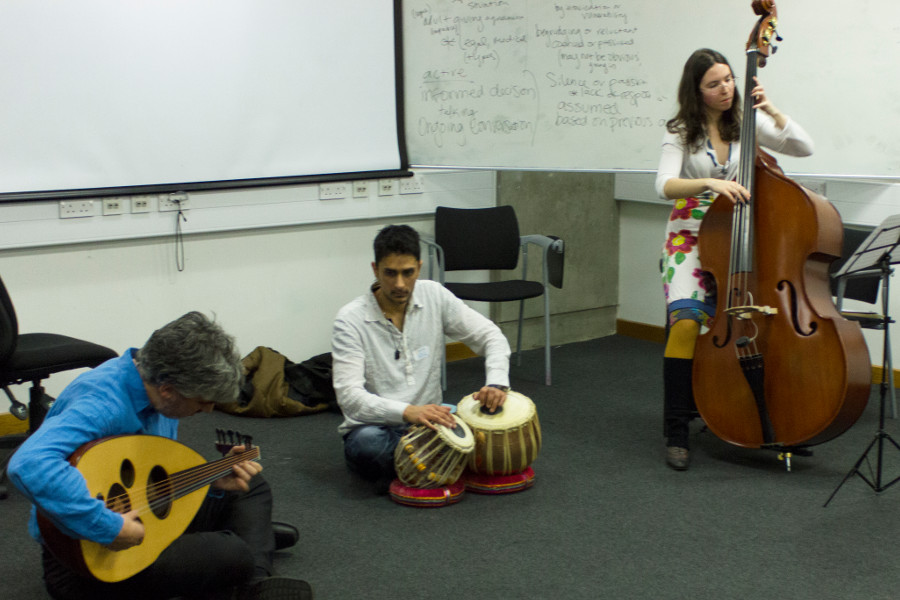In transit between East and West, Dafarahn look for new dimensions of musical interculturality, researching endangered music cultures and adapting them to a modern setting uniting respect for tradition with freedom of innovation.
Initiated in London by Francesco Iannuzzelli, Italian musician and Oud teacher and performer, and Lucile Belliveau, French double bass player, this rare duo combination presents a fascinating repertoire from the Iraqi, Persian and Ottoman traditions, alongside their own original compositions.
Inspired by the resonance of their instruments and by collaborations with other musicians, Dafarahn try to bring a contribution to the open world of tolerance, cultural exchange and mixity they believe in, where ideas and sounds can freely move between people and traditions.
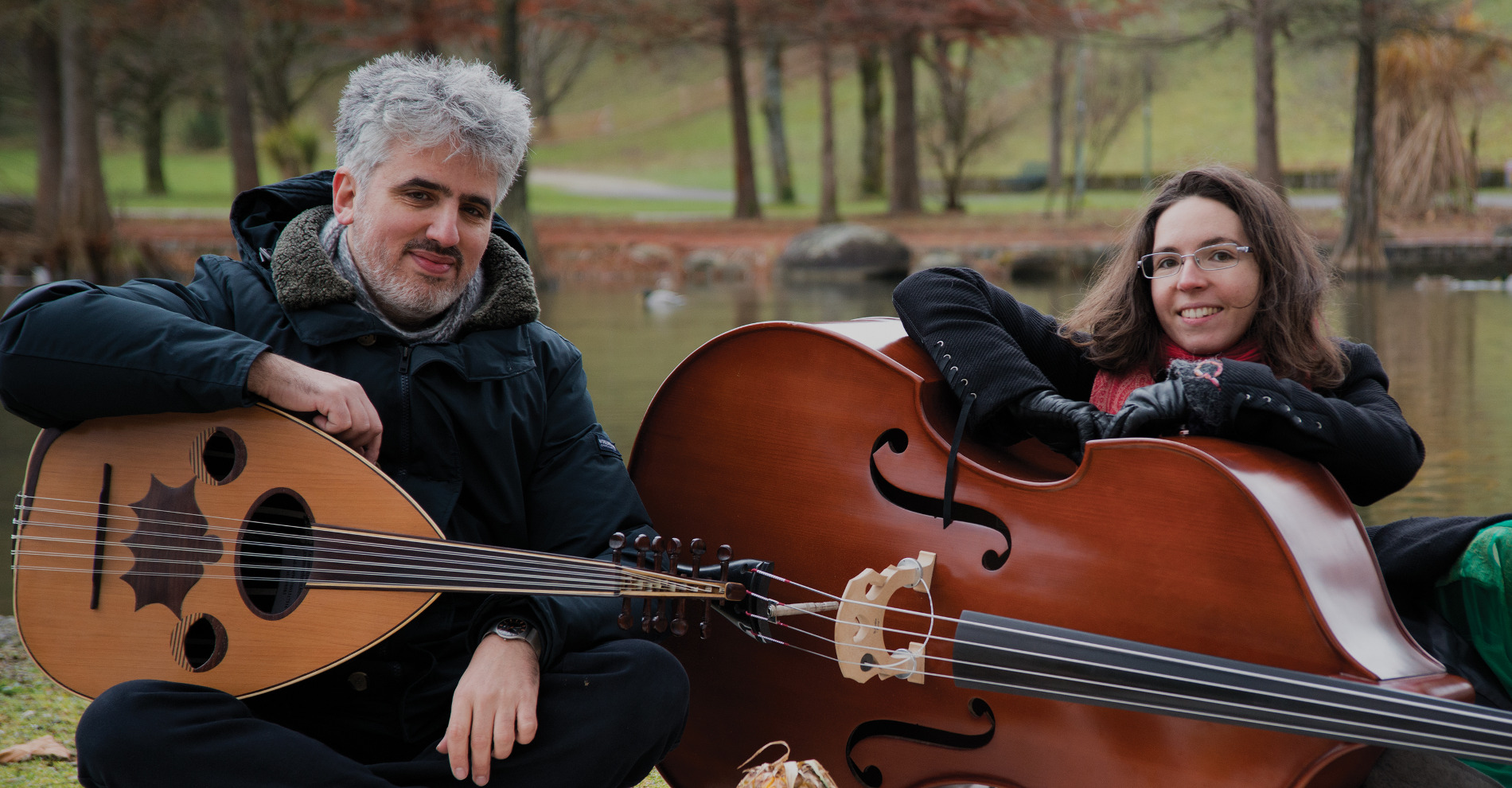
Francesco Iannuzzelli
Oud
A long term activist in disarmament, pacifism and migrants' rights, Francesco has extensively worked with Middle-Eastern musicians in Europe and in their countries of origin. Following his studies in classical and jazz guitar, composition and counterpoint, and his professional experience as a session musician, sound engineer and arranger, Francesco has explored music instruments and styles from all over the world, finally embracing the Oud after his involvement in several causes for building peace in the Middle-East, where music is part of a wider cultural resistance against oppression and injustice.
He has studied in London with the Iraqi Master Ahmed Mukhtar for more than 10 years. With him, Francesco has launched Taqasim Music School, where he teaches Oud and Maqam music theory. Francesco has recently obtained a Master in Music Performance, with distinction, at SOAS University, specialising in Middle-Eastern music and the Oud. He regularly performs as a soloist and in various ensembles, while continuing his music studies with the Oud Masters Ehsan Emam and Necati Celik.
Lucile Belliveau
Double Bass
Lucile is a smiley girl, sensitive and genuinely multicultural. She began music at an early age studying piano and european classical music in the conservatories of Clamart and Meudon in France. When she first held a double bass in her arms, she felt that she wanted to go to the end of the world with it and that is what she has been striving to do ever since. She began by playing in amateur symphonic orchestras like the Orchester Der Musikverein in Vienna and the BCO in London, and in the jam jazz session in the 38 riv’ club in the heart of Paris. Lucile always thought that we have to do away with pre conceptions about double bass, big instrument that people often cannot name, supposedly confined to accompaniment. She wants to promote the instrument to the front of the stage, as an equal to the more widely accepted solo instruments.
Now interested in world music and particularly in middle eastern music, she is part of several musical projects with musicians from all over the world based in London and Munich. She does the novel work of arranging traditional repertoire, which usually consists of a single melodic line played in unison, by adding an additional a melodic and rhythmic voice that harmonises with the original melody. She is is always looking for new techniques that will make everyone gape and cheer for the double bass, exploring new ways of playing, banging or caressing the instrument. She also pours out her well hidden melancholic side in original compositions and improvisations for oud and double bass.
Lucile wants to play the role of ambassador of solo double bass and of middle eastern music in Europe. For this, she is starting to perform in Europe and is organizing in Munich a world music jam session open to everyone, hoping to create a platform for intercultural exchanges. She is always trying to improve both technique and theoretical knowledge so she will soon study double bass with Peter Herbert, who did similar arranging work with the Oud player Marcel Khalife, and study Ottoman music with Kudsi Erguner in Venice.
